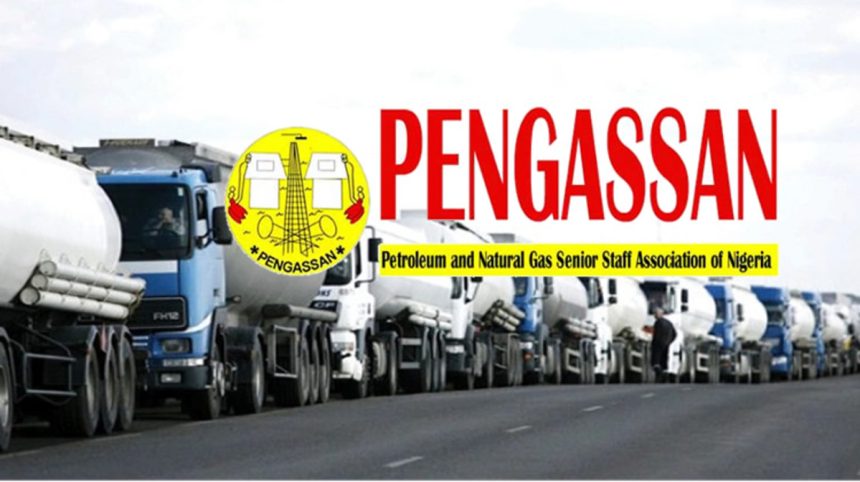The Petroleum and Natural Gas Senior Staff Association of Nigeria (PENGASSAN) on Wednesday warned that constant policy amendments of laws, the Petroleum Industry Act (PIA) being chief among the list, are discouraging investors from investing in Nigeria’s oil sector.
President of the trade union, Comrade Festus Osifo, raised the concerns at the ongoing 4th Petroleum and Energy Advancement and Leadership Summit (PEALS) in Abuja. He also said that frequent reviews and amendments of laws and policies do not create the needed stability investors seek..
“The recent amendment to PIA by removing the fiscal section and transferring it to the Nigeria Tax Administration Act has created some level of anxiety in the industry. As if this is not enough, there are plans to further distort the act by a series of proposed amendments.
“Amendments to laws are inevitable but not done haphazardly and intermittently, even before those the laws are intended to serve understand what it contains.
“Investors certainly need medium to long-term planning. Policy somersaults and frequent changes to laws don’t aid stability. At best, it’s a disincentive to investment,” PENGASSAN President noted.
While he commended the recent executive orders signed by President Bola Tinubu, which he described as steps in the right direction, he noted that they would boost oil production, advance gas development, and streamline contracting processes.
However, Osifo decried the unsafe conditions some workers were exposed to and compelled to work under. Osifo stressed that every worker in the oil and gas industry deserves to return home safely.
He said, “Unsafe conditions must never be the price of resilience. From the creeks to offshore platforms, every worker deserves a secure environment, robust safety processes, continuous training, advanced technologies, and transparent reporting.
“Protecting our rivers, lands, and air is non-negotiable. Gas flaring must end. Polluted sites must be restored. Accountability must be enforced for today and for generations to come. Sadly, some platforms remain unsafe, with operators cutting corners at the expense of lives. Although these are isolated cases, every life matters.”
Osifo added that the 2025 summit would critically examine the policies, programmes, and incentives needed to sustain the growth in the nation’s crude oil output. It would also offer an opportunity to address policy inconsistencies, pipeline security, contract bottlenecks, marginal field development, funding gaps, and governance.
In his remark at the Summit, the Group Chief Executive Officer (GCEO) of the Nigerian National Petroleum Company (NNPC) Limited, Bayo Ojulari, said the company was determined to put in place sustainable solutions that would make all refineries in the country fully operational.
According to him, the organised labour, government and the oil and gas industry must work together to derisk the oil and gas sector to attract and return investments.
“This new NNPC’s drive includes restructuring our joint venture, monetising our assets, and investing in critical infrastructure such as upgrading our existing pipeline as well as building new ones, upgrading our gas hubs as well as building new ones.
“We are determined to make sure that our refineries work. With the spending, a lot of detailed reviews, taking all the learnings, we are driven by the fact that the Nigerian states and the future of Nigeria’s success are opposed to any individual of us.
“That is what drives our determination to ensure that we put a solution that is sustainable for our refineries.”
On his part, Minister of State Petroleum Resources (Oil), Heineken Lokpobiri, who highlighted the critical role of workers in the increased daily production output of about 1.8 million barrels, said it was as a result of “the professionalism, the education, the expertise and the innovation.
Lokpobiri, who sought PENGASSAN’s support to realise Nigeria’s target of over 2 million barrels per day, assured the Organisation of the Petroleum Exporting Countries (OPEC) that although Nigeria was not ambitious to exceed its production quota, the country was committed to meeting the increased local and regional demands for crude.
Also, the Minister of Labour and Employment, Muhammad Dingyadi, who stressed the need to prioritise the health and safety of workers, communities, and ecosystems, urged regulators and unions in the sector to ensure workers’ lives were protected and that environmental stewardship becomes a cooperative value.
He said, “Advancing our HSE standards is not optional. It is imperative. I urge all stakeholders to invest in robust safety protocols, continuous training, and proactive environmental stewardship because the cost of negligence is far greater than the investment in prevention.
“I call on all companies to invest in workers’ welfare, HSE innovation, and ESG compliance, labour unions to embrace constructive engagement and capacity building, and government agencies to streamline regulatory processes and support labour-friendly reforms.”
ALSO READ TOP STORIES FROM NIGERIAN TRIBUNE
WATCH TOP VIDEOS FROM NIGERIAN TRIBUNE TV
- Relationship Hangout: Public vs Private Proposals – Which Truly Wins in Love?
- “No” Is a Complete Sentence: Why You Should Stop Feeling Guilty
- Relationship Hangout: Friendship Talk 2025 – How to Be a Good Friend & Big Questions on Friendship
- Police Overpower Armed Robbers in Ibadan After Fierce Struggle






